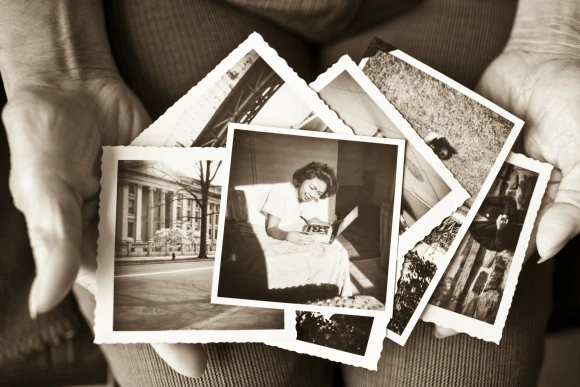Time Required
10 minutes/day for at least one week.
How to Do It
Each day for at least one week, write down three things that went well for you today, and provide an explanation for why they went well. It is important to create a physical record of your items by writing them down; this can be more helpful than simply doing this exercise in your head. The items can be small, everyday events or more important milestones (e.g., “I got out of bed today,” "My grandparents were happy when I brought them groceries," or “I earned a big promotion”). To make this exercise part of your daily routine, some find that writing before bed is helpful.
As you write, follow these instructions:
- Give the event a title (e.g., “I received a compliment on something I've been working hard on”).
- Write down exactly what happened in as much detail as possible, including where you were, what you did or said, and, if others were involved, what they did or said.
- Include how this event made you feel at the time and how this event made you feel later (including now, as you remember it).
- Explain what you think caused this event—why it happened.
- Use whatever writing style you please, and don't worry about grammar or spelling. Use as much detail as you'd like.
- If you find yourself focusing on negative feelings, try to refocus your mind on the good event and the positive feelings that came with it. This can take effort but gets easier with practice and can make a real difference in how you feel.
Why You Should Try It
In our day-to-day lives, it's easy to get caught up in the things that go wrong and feel like we're living under our own private rain cloud; at the same time, we tend to adapt to the good things and people in our lives, taking them for granted. As a result, we often overlook everyday beauty and goodness—a kind gesture from a stranger, say, or the warmth of the sun on a chilly morning. In the process, we frequently miss opportunities for happiness and connection.
This practice can help counterbalance those tendencies. Although emotions like disappointment are natural and serve an important purpose, it can be draining to focus all our attention on them. By remembering and listing three positive things that happened in your day—and considering what caused them—you tune into the sources of goodness in your life. It's a habit that can change the emotional tone of your life, energizing you with positive feelings of gratitude—which may be why this practice is associated with significant increases in happiness.
Why It Works
By giving you the space to focus on the positive, this practice teaches you to notice, remember, and savor the better things in life. It may prompt you to pay closer attention to positive events down the road and engage in them more fully—both in the moment and later on, when you can reminisce and share these experiences with others. Reflecting on the cause of the event may help attune you to the deeper sources of goodness in your life, fostering a mindset of gratitude.
Evidence That It Works
Seligman, M. E., Steen, T. A., Park, N., & Peterson, C. (2005). Positive psychology progress: Empirical validation of interventions. American Psychologist, 60(5), 410.
Visitors to a website received instructions for performing Three Good Things. They showed increased happiness immediately afterward, as well as one week, one month, three months, and six months later.
Who Has Tried the Practice?
Participants in the above study were mostly white Americans with postsecondary education and average income or above. Additional research has engaged members of other groups:
- Israeli adults showed less pessimism and reduced negative emotions one month after doing Three Good Things for five minutes daily across six days.
- Indian adolescents reported greater well-being after doing the exercise daily for one week.
- Kenyan teens in a Nairobi slum improved in anxiety, depression, and perceived social support through a community-based program that included one week of Three Good Things.
- Many different groups of people in China, including school teachers, nurses, methadone users, male prisoners, and cervical cancer patients, have been found to benefit from Three Good Things.
More research is needed to explore whether, and how, the impact of this practice extends to other groups and cultures.
Keep in Mind
Evidence suggests that disabilities related to cognitive processing and mental imagery might limit the benefits of Three Good Things.
Sources
Jeffrey Huffman, M.D., Harvard Medical School, Massachusetts General Hospital
Sonja Lyubomirsky, Ph.D., University of California, Riverside
References
Bahník, Š., Vranka, M., & Dlouhá, J. (2015). X good things in life: Processing fluency effects in the “Three good things in life” exercise. Journal of Research in Personality, 55, 91–97.
Baumsteiger, R., Mangan, S, Bronk, K.C. & Bono, G. (2019). An integrative intervention for cultivating gratitude among adolescents and young adults. The Journal of Positive Psychology, 14(6), 807–819.
Chan, D. W. (2010). Gratitude, gratitude intervention and subjective well-being among Chinese school teachers in Hong Kong. Educational Psychology, 30(2), 139–153.
Guo, Y., Lam, L., Plummer, V., Cross, W., & Zhang, J. (2020). A WeChat‐based “Three good things” positive psychotherapy for the improvement of job performance and self‐efficacy in nurses with burnout symptoms: A randomized controlled trial. Journal of Nursing Management, 28(3), 480–487.
Jiao, M., Chen, W., Gu, J., Li, J., Liu, D., Lau, J. T. F., . . . Hao, Y. (2020). Efficacy of a positive psychological intervention in improving mental health status among methadone maintenance treatment users in Guangzhou, China—a randomized controlled trial. International Journal of Mental Health and Addiction, 19, 971–985.
Khanna, P., & Singh, K. (2019). Do all positive psychology exercises work for everyone? replication of Seligman et al.’s (2005) interventions among adolescents. Psychological Studies, 64(1), 1–10.
Killen, A. & Macaskill, A. (2015). Using a gratitude intervention to enhance wellbeing in older adults. Journal of Happiness Studies, 16(4), 947–964.
Littman-Ovadia, H., & Nir, D. (2014). Looking forward to tomorrow: The buffering effect of a daily optimism intervention. The Journal of Positive Psychology, 9(2), 122–136.
Luo, Y., Li, H., Plummer, V., Cross, W. M., Lam, L., Guo, Y., . . . Zhang, J. (2019). An evaluation of a positive psychological intervention to reduce burnout among nurses. Archives of Psychiatric Nursing, 33(6), 186–191.
Odou, N., & Vella-Brodrick, D. (2013). The efficacy of positive psychology interventions to increase well-being and the role of mental imagery ability. Social Indicators Research, 110(1), 111–129.
Osborn, T. L., Wasil, A. R., Venturo-Conerly, K., Schleider, J. L., & Weisz, J. R. (2020). Group intervention for adolescent anxiety and depression: Outcomes of a randomized trial with adolescents in Kenya. Behavior Therapy, 51(4), 601–615.
Proyer, R. T., Gander, F., Wellenzohn, S., & Ruch, W. (2014). Positive psychology interventions in people aged 50–79 years: Long-term effects of placebo-controlled online interventions on well-being and depression. Aging & Mental Health, 18(8), 997–1005.
Shao, D., Gao, W., & Cao, F. (2016). Brief psychological intervention in patients with cervical cancer: A randomized controlled trial. Health Psychology, 35(12), 1383–1391.
Yang, Y., Zhao, H., Aidi, M., & Kou, Y. (2018). Three good deeds and three blessings: The kindness and gratitude interventions with Chinese prisoners. Criminal Behaviour and Mental Health, 28(5), 433–441.
Reflecting on Three Good Things can spotlight the good in your life and boost your feelings of thankfulness. Do you have an attitude of gratitude? Take our Gratitude quiz to find out:

 This practice is part of the
This practice is part of the






Comments
and Reviews
Mary Joslin
led me to a positive feeling
Brenda Quiros Mendez
Hope Albert
good
Stacy Lufkin
Tiffany Jane Plumlee
Carol L Benton
The Greater Good Toolkit
Made in collaboration with Holstee, this tookit includes 30 science-based practices for a meaningful life.
The Greater Good Toolkit
Made in collaboration with Holstee, this tookit includes 30 science-based practices for a meaningful life.